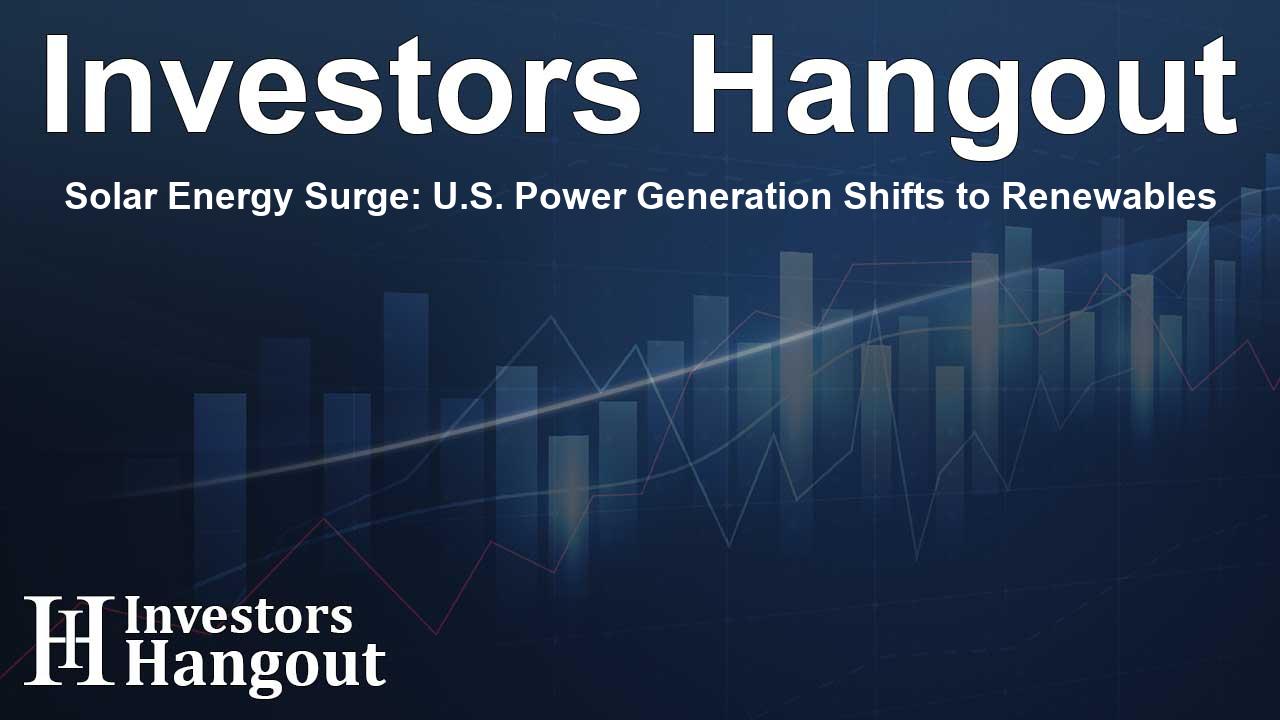Solar Energy Surge: U.S. Power Generation Shifts to Renewables

U.S. Solar Energy Growth Forecast by EIA
The U.S. Energy Information Agency (EIA) recently provided an optimistic outlook regarding solar energy. According to their latest report, the expansion of solar power plants is anticipated to be the main contributor to the growth of electricity generation in the U.S. in the coming years.
Projected Additions in Solar Capacity
The EIA predicts that U.S. utilities and independent power producers will introduce a substantial 26 gigawatts (GW) of new solar capacity in 2025. Following that, another 22 GW is expected to be added in 2026. This increase in capacity represents a significant shift toward renewable energy sources.
Record Growth in 2024
In the previous year, the electric power sector achieved a remarkable milestone by adding a record-breaking 37 GW of solar power capacity. This expansion was nearly double the capacity added in 2023, showcasing the rapid evolution of solar energy as a primary power source in the United States.
Decline of Coal Generation
Alongside the growth in solar energy, the EIA also forecasts an accelerating decline in coal-generated power. Specifically, they predict that 6% of coal capacity, equivalent to 11 GW, will be retired from the U.S. electricity sector in 2025. This trend will continue with an additional 2% reduction, or 4 GW, in 2026. This shift highlights a growing commitment to cleaner energy sources as the country transitions away from fossil fuels.
Reasons for Increased Solar Adoption
Several factors contribute to the rapid adoption of solar energy in the U.S. advancements in solar technology, decreasing costs of solar panels, and an increasing number of policies and incentives aimed at promoting renewable energy usage all play crucial roles in this transition. These elements facilitate both residential and commercial investment in solar energy systems.
Future Implications for Energy Sector
The rapid growth in solar power generation indicates a pivotal shift in the U.S. energy landscape. As more solar plants come online, we can expect a rise in renewable energy contributions to the national grid. This change not only reflects environmental commitments but also signals economic opportunities within the renewable energy sector.
Conclusion
Overall, the information from the EIA underscores the importance of solar energy in the context of future U.S. electricity generation. As the nation moves toward renewable sources, the increasing contributions from solar capacity will shape the future of energy consumption and production.
Frequently Asked Questions
What is the EIA's forecast for solar energy growth?
The EIA predicts an addition of 26 GW of solar capacity in 2025 and 22 GW in 2026.
How much solar power capacity was added in 2024?
In 2024, the electric power sector added a record 37 GW of solar power capacity.
What is happening to coal power generation in the U.S.?
The EIA forecasts that coal retirements will accelerate, with 11 GW being retired in 2025 and 4 GW in 2026.
What factors are driving solar energy adoption?
Advancements in technology, lower solar panel costs, and supportive policies are key drivers of solar energy adoption.
What does the future of the energy sector look like?
The growth of solar energy indicates a significant shift towards renewable sources in the U.S. energy landscape.
About Investors Hangout
Investors Hangout is a leading online stock forum for financial discussion and learning, offering a wide range of free tools and resources. It draws in traders of all levels, who exchange market knowledge, investigate trading tactics, and keep an eye on industry developments in real time. Featuring financial articles, stock message boards, quotes, charts, company profiles, and live news updates. Through cooperative learning and a wealth of informational resources, it helps users from novices creating their first portfolios to experts honing their techniques. Join Investors Hangout today: https://investorshangout.com/
Disclaimer: The content of this article is solely for general informational purposes only; it does not represent legal, financial, or investment advice. Investors Hangout does not offer financial advice; the author is not a licensed financial advisor. Consult a qualified advisor before making any financial or investment decisions based on this article. The author's interpretation of publicly available data presented here; as a result, they should not be taken as advice to purchase, sell, or hold any securities mentioned or any other investments. If any of the material offered here is inaccurate, please contact us for corrections.